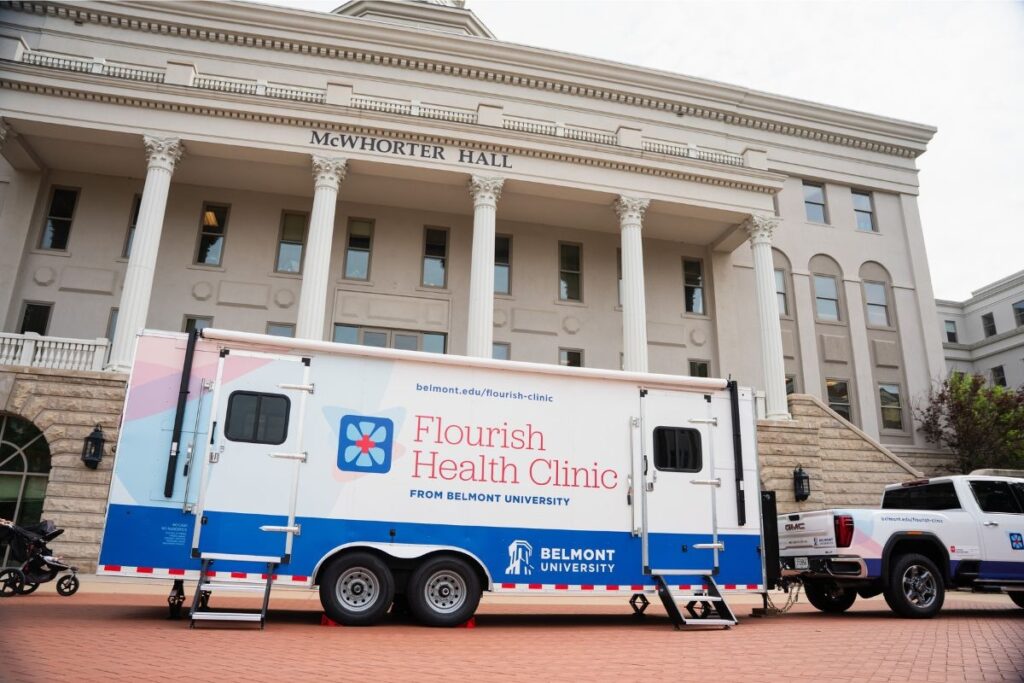
Opioid addiction treatment providers in Middle Tennessee are spinning up mobile units to increase access to highly effective step-down medications. But speed bumps still stand in the way truly mobile medication-assisted treatment.MAT, as it’s known, is now the standard of care and involves prescribing a patient an opioid like buprenorphine (better known by the brand name Suboxone) to ease the intense withdrawals that come along with stopping synthetic street drugs. Buprenorphine is also harder to abuse with little risk of overdose.
Around the country, drug treatment organizations have been looking for ways to reduce barriers to MAT, as it’s known. And distance makes a difference. Belmont University received $6.4 million from the opioid settlement money allotted to Tennessee after pitching a plan for mobile drug treatment and harm reduction, focused on people who are transient or unhoused.
The first of two units is now getting rolling. But MAT prescribing required a workaround because Tennessee law doesn’t allow dispensing the medication outside a clinic.
“The medications used for MAT are wonderful, and I think they save lives,” says Belmont pharmacy professor Tracy Frame, co-director of the Flourish Mobile Clinic. “But I think there’s a huge piece of the whole-person care that we really have to talk about.”
The units will also provide harm reduction services such as wound care, which has become more needed with use of drugs like the animal tranquilizer xylazine. The multi-disciplinary teams include students and will offer some primary care and mental health services.
For people who are ready to start drug treatment, Belmont’s units will connect them with Mental Health Cooperative’s brick-and-mortar clinics. They have same-day appointments and can offer transportation.
Security Concerns
Aside from state regulations, dispensing drugs used for MAT creates security concerns. Buprenorphine, which is often better known by the brand name drug Suboxone, is still a narcotic with street value.
Cedar Recovery in Lebanon has launched mobile MAT units under a pilot program with the Tennessee Board of Pharmacy. But the company still isn’t dispensing MAT drugs like Suboxone directly from the retrofitted RVs, though that is the ultimate plan. For now, the units park in the lot of participating pharmacies so patients can pick up their medication right after meeting with the doctor, often paid for through a state grant.
“Through telemedicine, they can see their physician,” says Dr. Josh Wienczkowski, Cedar Recovery medical director. “Then we can pay for their medication.”
One of the nation’s first mobile MAT units began operating in Rhode Island in 2023 and faced some resistance, including a cease-and-desist order from local leaders arguing the program violated zoning laws.

